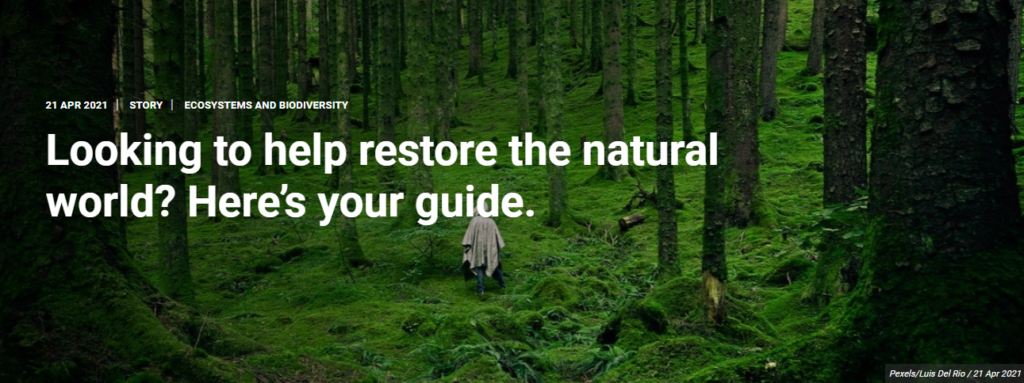Source >>>
Pexels/Luis Del Rio / 21 Apr 2021

Food, water, medicine, energy: the planet’s ecosystems provide the essentials of life, so long as they’re taken care of.
Unfortunately, that hasn’t been happening. During the last several decades, human development has pushed many of the world’s forests, savannahs and other natural systems to the brink of collapse.
To counteract that decline, the United Nations Environment Programme and several partners are launching a practical guide to restoring ecosystems.
It provides tips to individuals, communities, businesses and government agencies, highlighting how they can revive the natural spaces around them.

The guide comes just ahead of the launch of the United Nations Decade on Ecosystem Restoration, a global drive to halt the degradation of land and oceans, protect biodiversity, and rebuild ecosystems.
The practical guide contains pointers on how people can design their own restoration project, clean up their town, and green their home, business or school.
It also outlines how citizens can halt the purchase of unsustainable products and shift towards plant-based diets, which have less impact on the environment.
Finally, the guide showcases ways for people to hold public discussions about the value of ecosystems, and covers how they can stage online campaigns to draw attention to climate change and nature loss.
Along with those pointers, the document features an overview of the main ecosystem types, from forests and farmlands to rivers and coasts. It lists the benefits they provide, some of the biggest threats they face, and outlines ways in which they can be restored.
It also provides links to organizations with expertise in restoration, includes the UN Decade’s visual identity, and features a list of hashtags, like #GenerationRestoration and #WorldEnvironmentDay, to help maximize the exposure of restoration projects.TOPICS

